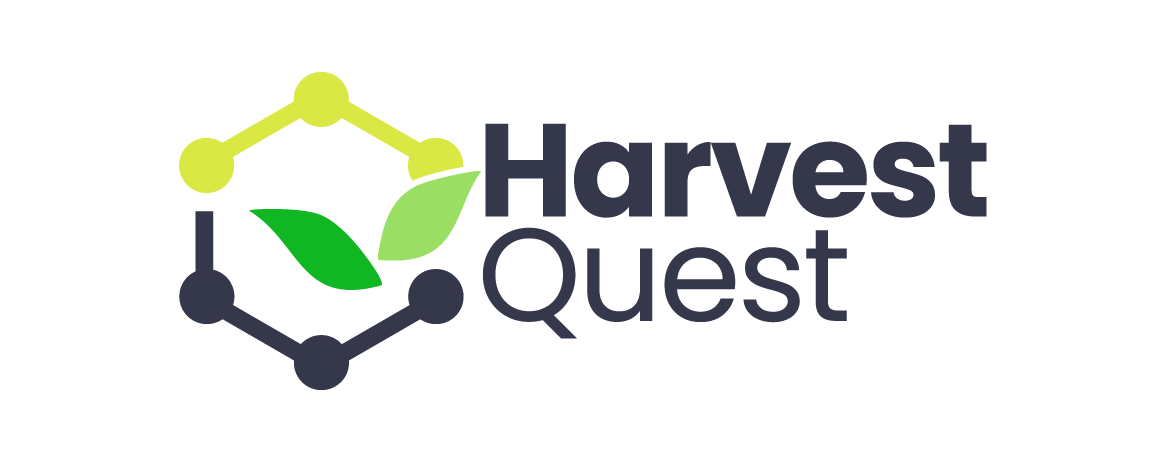Site Achieves Faster Curing, Better Decomposition, with Help from Harvest Quest
Lancaster County, Pennsylvania is definitely farm country. This mostly rural region a few dozen miles west of Philadelphia has certainly seen its share of suburban growth, but it will always be an agriculture powerhouse for the state. And the primary agricultural activity is livestock; horses and dairy cattle to be precise. Where there is livestock, there is also manure—lots of it. But what used to be a problem for farms is now actually an asset. 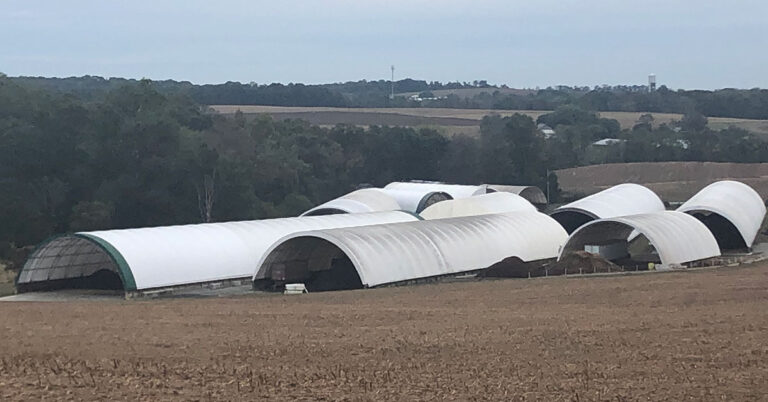
The organic rich manure is a prime ingredient for compost, if you know how to process it properly.
And Terra-Gro Inc. does. This composting operations company knows how to effectively convert all that manure into a high-quality finished compost without all the negative side effects often associated with manure composting. Loren Martin, general manager of Terra-Gro, explains.
“Most manure composting is done on farms where the manure is generated. This results in average quality compost at best, and contributes harmful runoff to the environment at worst. Protecting the integrity of Lancaster County’s environment, and the greater Chesapeake Bay region requires a sustainable and economically viable alternative. That is what we’re providing through Terra-Gro.”
An Opportunity Born From Necessity
Like most companies, Terra-Gro began merely as a necessary solution to a nagging problem.
“We started composting because our parent company is a livestock bedding supplier, mostly in the equine market, providing wood-based sawdust and shavings to horse farms, race tracks and other similar facilities,” shares Loren. “Many of those customers began inquiring about a sustainable outlet for manure removal, so composting was our solution to providing a turnkey removal and hauling service to satisfy that demand.”
To anyone that understands the composting process, their initial results are probably rather predictable.
“It did not take long before we realized that composting horse manure on its own doesn’t go that well,” Loren laughs. “And not because it was a big pile of manure. To the contrary, it was mostly shavings and sawdust with a little manure mixed in because we were providing our service to more affluent customers that used more bedding and changed it more frequently.”
A Challenge to Keep Carbon Content in Check
The solution was actually more manure, and not from horses but rather from cattle. Through a partnership venture with Oregon Dairy Organics that began in 2010, Terra-Gro recognized that adding cow manure reduced the carbon component of their compost recipe which resulted in a better process.
On this new site, both horse and dairy cattle manure could be blended and mixed with green waste stocks to produce a much more successful compost. The effort worked, and for several years the operation was achieving their goal of providing a proper manure composting solution for farms that wanted to ensure they contributed to positive environmental practices. Until the source organics started to evolve.
“As we continued to build on our success, more varied feedstocks were coming in to the yard which changed the consistency and ratios of our mix,” recalls Loren. “More food waste and produce meant our blends were getting wetter and sloppier and we started noticing an increase in odor issues and a decrease in thorough decomposition. It wasn’t at problem levels, but we wanted to get ahead of it before it got worse.”
Harvest Quest Biotechnology Brings Microbial Solution
For a solution, Loren consulted with Harvest Quest, a biotechnology firm providing naturally produced microbial inoculants that enhance the biological process of composting. The application of Harvest Quest inoculants was also accompanied by some process and equipment changes, the combination of which really transformed their results.
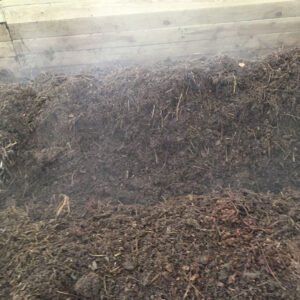
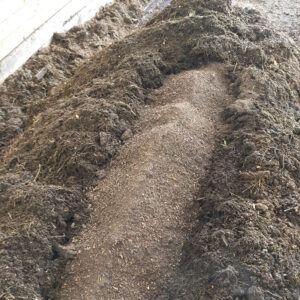
“Adding the Harvest Quest inoculant not only accelerated our decomposition times, but the total breakdown of materials was more complete as well,” he describes. “The addition of fruit and vegetable waste to our composting mix brings a more highly charged material, and Harvest Quest leverages that to generate a more significant breakdown of carbon and reduce cure times. Coupled with additional changes we made at the same time in turning equipment and composting techniques led to a dramatic improvement in overall performance.”
Prior to those process changes and the involvement of Harvest Quest biology in their composting process, Loren estimates their typical curing time was around 14 weeks. Now, their compost process is reliably done after only seven or eight weeks. The reduction of overs in their finished compost has also been quite noticeable, as has the color and quality of their material.
“We are definitely seeing a finer grade of material at the end of the process. It’s a much smaller particle size with less screened off overs. We get a darker, richer material for sure,” Loren details. “And we’re consistently receiving maturity test results at eight weeks now that used to require 14 weeks, so the benefits of bringing Harvest Quest into our process have been very real and very positive.”
Market Expansion with More Refined Products
The higher quality finished product is attracting more attention in the marketplace as well. Because they’re not located in a high-traffic retail area, the majority of Oregon Dairy’s compost is sold wholesale to landscape suppliers, soil blenders, golf courses, excavators and athletic turf managers.
“Our reputation over the last 5-8 years has grown significantly from word of mouth,” continues Loren. “As our product has gotten finer and more refined, we’re seeing even stronger growth in the higher-end markets. Harvest Quest played an important part in our targeting these new opportunities.”
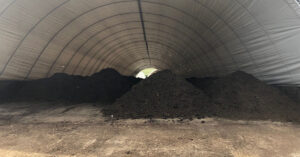
Terra-Gro oversees two compost yards now with Oregon Dairy. Loren estimates they bring in roughly 60,000 yards of material annually between them both. He believes they have room to grow, but a third site isn’t out of the question in the future.
“Our operations experienced double-digit growth over the last half-dozen years, and we feel we still have more room to grow,” he concludes. “We’ll hit a ceiling eventually though. Pennsylvania permitting for compost yards is extensive, and the design and engineering costs to build a new yard isn’t insignificant. So we’re always looking for ways to maximize our current assets and increase efficiency and throughput on the sites we have now. Harvest Quest helped us do that and we believe that extended the capacity of our current assets by several years for sure.”
